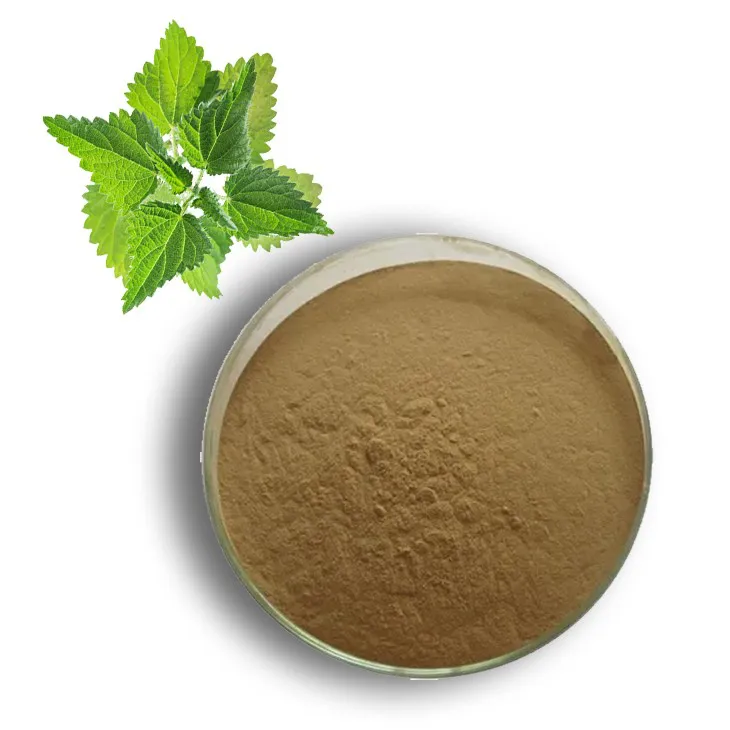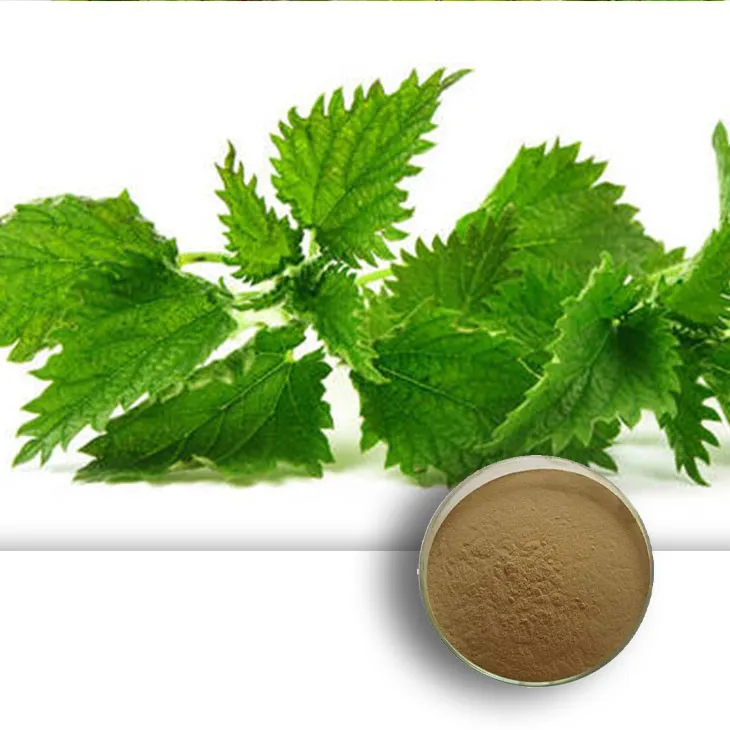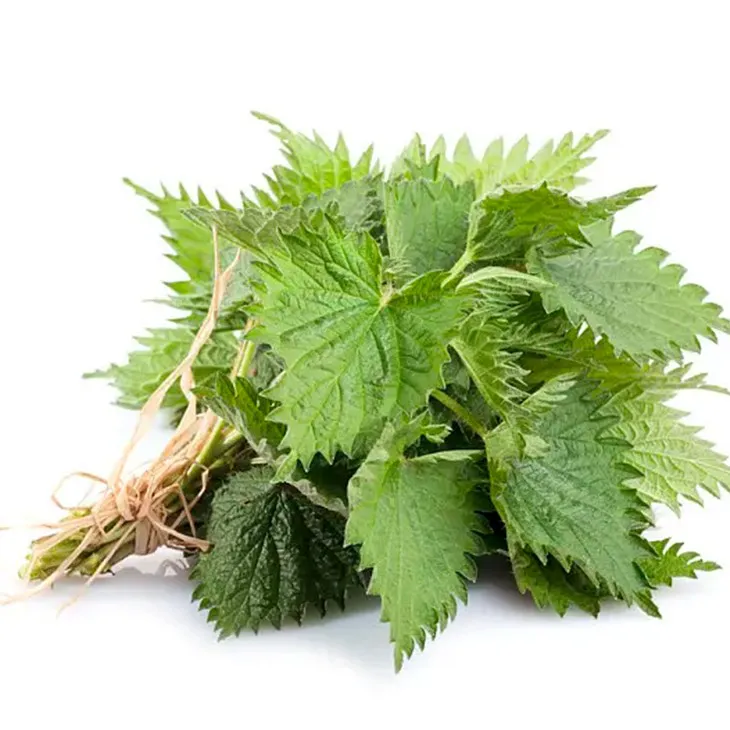- 0086-571-85302990
- sales@greenskybio.com
Shaping the Future: Trends and Innovations in the Nettle Leaf Extract Industry.
2024-12-16

1. Introduction
The Nettle leaf extract industry has been on a remarkable growth trajectory in recent years. Nettle (Urtica dioica), a plant that has been used for centuries in traditional medicine, is now gaining newfound popularity in the modern health and wellness arena. The extract derived from nettle leaves is rich in a variety of bioactive compounds, including flavonoids, phenolic acids, and polysaccharides, which are associated with numerous health benefits.
As the global population becomes more health - conscious, the demand for natural and plant - based products has soared. Nettle leaf extract, with its potential anti - inflammatory, antioxidant, and anti - allergic properties, is well - positioned to meet this growing demand. However, like any emerging industry, it faces a unique set of challenges and opportunities that will shape its future.

2. Rising Consumer Awareness
Consumer Education and Information Sources
One of the most significant trends in the Nettle leaf extract industry is the increasing consumer awareness of its benefits. In the digital age, consumers have access to a vast amount of information. Health blogs, social media platforms, and scientific research articles are all contributing to the spread of knowledge about nettle leaf extract.
For example, many health - focused blogs feature articles on the use of nettle leaf extract for treating conditions such as arthritis and hay fever. Social media influencers also play a role in promoting the product, often sharing their personal experiences with nettle - based remedies. Additionally, scientific studies that demonstrate the effectiveness of nettle leaf extract in areas such as reducing inflammation are being more widely reported.
Market Segmentation Based on Consumer Needs
The growing awareness has led to a more segmented market. Different consumer groups are emerging based on their specific needs and interests.
- Health - Conscious Consumers: These are individuals who are generally interested in maintaining good health and preventing diseases. They may use nettle leaf extract as a part of their daily supplement regimen, believing in its antioxidant and immune - boosting properties.
- Alternative Medicine Enthusiasts: This group is more likely to turn to nettle leaf extract as an alternative treatment for various ailments. For example, they may use it instead of over - the - counter anti - inflammatory drugs for minor joint pain.
- Cosmetic - Oriented Consumers: Nettle leaf extract is also finding its way into the beauty and cosmetic industry. Consumers interested in natural skincare products may be attracted to nettle - based creams and lotions, as it is believed to improve skin health, such as reducing acne and eczema.

3. Innovation in Formulation
New Delivery Systems
Innovations in formulation are crucial for the nettle leaf extract industry. One area of focus is the development of new delivery systems. Traditional forms of nettle leaf extract, such as capsules and tinctures, are being complemented by more advanced delivery methods.
For instance, nano - emulsions are being explored. Nano - emulsions can improve the solubility and bioavailability of nettle leaf extract. This means that the body can absorb the active compounds more effectively, potentially enhancing its therapeutic effects. Another example is the use of liposomal encapsulation. Liposomes can protect the extract from degradation in the digestive tract and target specific cells or tissues, allowing for a more targeted and efficient delivery of the beneficial compounds.
Combination Formulations
Combination formulations are also on the rise. Nettle leaf extract is being combined with other natural ingredients to enhance its efficacy or create new product profiles.
For example, in the supplement market, nettle leaf extract may be combined with other herbs like turmeric or ginger, which also have anti - inflammatory properties. The combination can potentially provide a more comprehensive approach to reducing inflammation in the body. In the cosmetic industry, nettle leaf extract may be combined with ingredients like aloe vera or vitamin E to create moisturizing and skin - rejuvenating products.

4. Quality Control and Standardization
Importance of Quality Assurance
Quality control and standardization are essential for the long - term success of the nettle leaf extract industry. With the increasing demand, ensuring the quality of the extract is of utmost importance.
High - quality nettle leaf extract should be free from contaminants such as pesticides, heavy metals, and microbial organisms. Consumers are becoming more vigilant about the safety and purity of the products they consume, and any quality issues can quickly damage the reputation of the industry.
Standardization of Active Compounds
Standardizing the levels of active compounds in nettle leaf extract is another key aspect of quality control.
Since the effectiveness of the extract is related to the concentration of bioactive components such as flavonoids and phenolic acids, it is necessary to develop standardized methods to measure and ensure consistent levels. This not only helps in guaranteeing the product's efficacy but also in facilitating regulatory compliance.
5. Marketing Strategies
Branding and Differentiation
In a competitive market, effective marketing strategies are crucial for the nettle leaf extract industry. Branding and differentiation play a significant role.
Companies are focusing on creating unique brand identities for their nettle leaf extract products. This may involve highlighting the source of the nettle, such as organic and sustainably - sourced nettle leaves. They are also differentiating their products based on factors like the extraction method (e.g., cold - pressed vs. solvent - based extraction), which can affect the quality and composition of the extract.
Online Marketing and E - commerce
The growth of the internet has revolutionized marketing in the nettle leaf extract industry. Online marketing channels are being extensively used to reach a wider audience.
E - commerce platforms provide an opportunity for companies to sell their products directly to consumers, bypassing traditional retail channels. Social media marketing, search engine optimization (SEO), and content marketing are all being employed to increase brand awareness and drive sales.
6. Regulatory Environment
Regulatory Challenges
The nettle leaf extract industry also has to navigate a complex regulatory environment. Different countries have different regulations regarding the classification, labeling, and marketing of dietary supplements and herbal products.
For example, in some countries, nettle leaf extract may be classified as a food supplement and subject to certain food safety regulations. In others, it may be considered a herbal medicine and have more stringent regulatory requirements related to efficacy and safety testing.
Compliance and Future Regulatory Trends
Companies in the industry need to ensure compliance with the relevant regulations in each market they operate in. Looking ahead, regulatory trends are likely to become more standardized globally, which may require companies to adapt their production and marketing practices.
7. Sustainability and Sourcing
Sustainable Sourcing Practices
As the demand for nettle leaf extract grows, sustainable sourcing practices are becoming increasingly important.
Some companies are working directly with farmers to promote sustainable nettle cultivation. This includes practices such as organic farming, which reduces the use of pesticides and fertilizers, and fair - trade initiatives that ensure farmers receive a fair price for their produce.
Environmental Impact and Conservation
Nettle is a wild plant in many regions, and over - harvesting can have an impact on the local ecosystem. Therefore, measures are being taken to ensure that nettle harvesting is done in an environmentally - friendly manner.
For example, setting quotas for wild nettle harvesting and promoting the cultivation of nettle in suitable areas can help to conserve the plant species and protect the environment.
8. Conclusion
The nettle leaf extract industry is at an exciting juncture, with numerous trends and innovations shaping its future. Rising consumer awareness is driving market growth and diversification, while innovation in formulation, quality control, marketing strategies, and sustainability are all key factors in its development.
However, challenges such as regulatory compliance and environmental impact also need to be addressed. By leveraging the opportunities presented by trends and innovations and proactively managing the challenges, the nettle leaf extract industry can continue to thrive and contribute to the health and wellness of consumers around the world.
FAQ:
What are the main benefits of nettle leaf extract that are driving increasing consumer awareness?
Nettle leaf extract has several potential benefits. It may have anti - inflammatory properties, which can be beneficial for conditions like arthritis. It is also rich in nutrients such as vitamins (e.g., vitamin C, vitamin K) and minerals (e.g., iron, calcium). Additionally, it has been studied for its potential antioxidant effects, which can help protect cells from damage caused by free radicals.
How is innovation in formulation affecting the nettle leaf extract industry?
Innovation in formulation is having a significant impact on the nettle leaf extract industry. New formulations can improve the bioavailability of the active compounds in nettle leaf extract. For example, encapsulation techniques can protect the extract from degradation and ensure its stability during storage and transit. Formulations can also be designed to target specific delivery in the body, enhancing its effectiveness for particular health applications.
What role does quality control play in the nettle leaf extract industry?
Quality control is crucial in the nettle leaf extract industry. It ensures the purity of the extract, free from contaminants such as pesticides, heavy metals, and other harmful substances. Quality control also involves standardizing the potency of the active ingredients in the extract. This is important for ensuring consistent product quality and for meeting regulatory requirements, which in turn builds consumer trust.
How are marketing strategies evolving in the nettle leaf extract industry?
Marketing strategies in the nettle leaf extract industry are evolving in several ways. There is an increasing focus on digital marketing channels, such as social media and e - commerce platforms, to reach a wider consumer base. Brands are also highlighting the scientific research behind the benefits of nettle leaf extract to build credibility. Additionally, there is a trend towards more personalized marketing, targeting specific consumer segments based on their health needs and preferences.
What new opportunities are emerging for the nettle leaf extract industry?
New opportunities for the nettle leaf extract industry include the growing demand for natural and plant - based products in the health and wellness market. There is also potential for expansion into new product categories, such as functional foods and beverages. Moreover, as research on the extract's benefits continues, there may be opportunities for collaboration with the pharmaceutical industry for drug development.
Related literature
- The Potential Health Benefits of Nettle Leaf Extract: A Review"
- "Innovations in Nettle Leaf Extract Formulation for Enhanced Bioavailability"
- "Quality Control Standards in the Herbal Extract Industry: Focus on Nettle Leaf Extract"
- "Marketing Nettle Leaf Extract: Strategies for Success in the Natural Health Market"
- ▶ Hesperidin
- ▶ Citrus Bioflavonoids
- ▶ Plant Extract
- ▶ lycopene
- ▶ Diosmin
- ▶ Grape seed extract
- ▶ Sea buckthorn Juice Powder
- ▶ Fruit Juice Powder
- ▶ Hops Extract
- ▶ Artichoke Extract
- ▶ Mushroom extract
- ▶ Astaxanthin
- ▶ Green Tea Extract
- ▶ Curcumin
- ▶ Horse Chestnut Extract
- ▶ Other Product
- ▶ Boswellia Serrata Extract
- ▶ Resveratrol
- ▶ Marigold Extract
- ▶ Grape Leaf Extract
- ▶ New Product
- ▶ Aminolevulinic acid
- ▶ Cranberry Extract
- ▶ Red Yeast Rice
- ▶ Red Wine Extract
-
Lemon Balm Extract
2024-12-16
-
Aguaje Extract
2024-12-16
-
Elderberry Extract
2024-12-16
-
Wheat Germ Extract
2024-12-16
-
Hawthorn powder
2024-12-16
-
Grape Leaf Extract
2024-12-16
-
Kupilu Extract
2024-12-16
-
Cat Claw Extract
2024-12-16
-
Thunder God Vine Extract
2024-12-16
-
Quercetin
2024-12-16





















